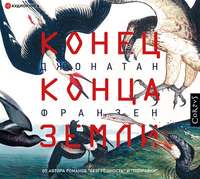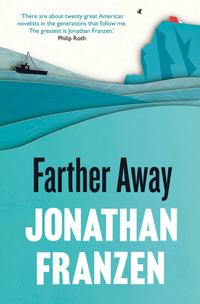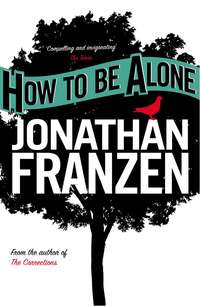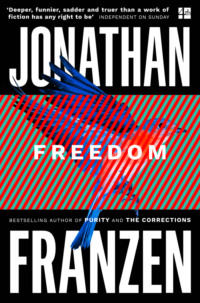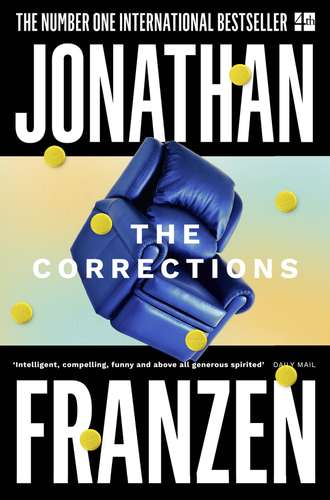
Полная версия
The Corrections
One warm Friday night near the end of the semester, Chip came home from his weekly grocery run and discovered that someone had vandalized his front door. Three of the four utility lights at Tilton Ledge had burned out, and the college was apparently waiting for the fourth to burn out before investing in replacements. In the poor light, Chip could see that somebody had poked flowers and foliage—tulips, ivy—through the holes in his rotting screen door. “What is this?” he said. “Melissa, you are jailbait.”
Possibly he said other things before he realized that his stoop was strewn with torn-up tulips and ivy, a vandalism still in progress, and that he was not alone. The holly bush by his door had produced two giggling young people. “Sorry, sorry!” Melissa said. “You were talking to yourself!”
Chip wanted to believe she hadn’t heard what he said, but the holly wasn’t three feet away. He set the groceries inside his house and turned a light on. Standing beside Melissa was the dreadlocked Chad.
“Professor Lambert, hello,” Chad said earnestly. He was wearing Melissa’s Mr. Goodwrench coveralls, and Melissa was wearing a Free Mumia T-shirt that might have belonged to Chad. She’d slung an arm around Chad’s neck and fitted a hip over his. She was flushed and sweaty and lit up on something.
“We were decorating your door,” she said.
“Actually, Melissa, it looks pretty horrible,” Chad said as he examined it in the light. Beat-up tulips were hanging down at every angle. The ivy runners had clods of dirt in their hairy feet. “Kind of a stretch to say ‘decorating.’”
“Well, you can’t see down here,” she said. “Where’s the light?”
“There is no light,” Chip said. “This is the Ghetto in the Woods. This is where your teachers live.”
“Dude, that ivy is pathetic.”
“Whose tulips are these?” Chip asked.
“College tulips,” Melissa said.
“Dude, I’m not even sure why we were doing this.” Chad turned to allow Melissa to put her mouth on his nose and suck it, which didn’t seem to bother him, although he drew his head back. “Wouldn’t you say this was sort of more your idea than mine?”
“Our tuition pays for these tulips,” Melissa said, pivoting to press her body more frontally into Chad. She hadn’t looked at Chip since he turned the outdoor light on.
“So then Hansel and Gretel came and found my screen door.”
“We’ll clean it up,” Chad said.
“Leave it,” Chip said. “I’ll see you on Tuesday.” And he went inside and shut the door and played some angry music from his college years.
For the last meeting of Consuming Narratives the weather turned hot. The sun was blazing in a pollen-filled sky, all the angiosperms in the newly rechristened Viacom Arboretum blooming hard. To Chip the air felt disagreeably intimate, like a warm spot in a swimming pool. He’d already cued up the video player and lowered the classroom shades when Melissa and Chad strolled in and took seats in a rear corner. Chip reminded the class to sit up straight like active critics rather than be passive consumers, and the students sat up enough to acknowledge his request without actually complying with it. Melissa, usually the one fully upright critic, today slumped especially low and draped an arm across Chad’s legs.
To test his students’ mastery of the critical perspectives to which he’d introduced them, Chip was showing a video of a six-part ad campaign called “You Go, Girl.” The campaign was the work of an agency, Beat Psychology, that had also created “Howl with Rage” for G—— Electric, “Do Me Dirty” for C—— Jeans, “Total F***ing Anarchy!” for the W—— Network, “Radical Psychedelic Underground” for E——.com, and “Love & Work” for M—— Pharmaceuticals. “You Go, Girl” had had its first airing the previous fall, one episode per week, on a prime-time hospital drama. The style was black-and-white cinema verité; the content, according to analyses in the Times and the Wall Street Journal, was “revolutionary.”
The plot was this: Four women in a small office—one sweet young African American, one middle-aged technophobic blonde, one tough and savvy beauty named Chelsea, and one radiantly benignant gray-haired Boss—dish together and banter together and, by and by, struggle together with Chelsea’s stunning announcement, at the end of Episode 2, that for nearly a year she’s had a lump in her breast that she’s too scared to see a doctor about. In Episode 3 the Boss and the sweet young African American dazzle the technophobic blonde by using the W—— Corporation’s Global Desktop Version 5.0 to get up-to-the-minute cancer information and to hook Chelsea into support networks and the very best local health care providers. The blonde, who is fast learning to love technology, marvels but objects: “There’s no way Chelsea can afford all this.” To which the angelic Boss replies: “I’m paying every cent of it.” By the middle of Episode 5, however—and this was the campaign’s revolutionary inspiration—it’s clear that Chelsea will not survive her breast cancer. Tear-jerking scenes of brave jokes and tight hugs follow. In the final episode the action returns to the office, where the Boss is scanning a snapshot of the departed Chelsea, and the now rabidly technophiliac blonde is expertly utilizing the W—— Corporation’s Global Desktop Version 5.0, and around the world, in rapid montage, women of all ages and races are smiling and dabbing away tears at the image of Chelsea on their own Global Desktops. Spectral Chelsea in a digital video clip pleads: “Help us Fight for the Cure.” The episode ends with the information, offered in a sober typeface, that the W—— Corporation has given more than $10,000,000.00 to the American Cancer Society to help it Fight for the Cure…
The slick production values of a campaign like “You Go, Girl” could seduce first-year students before they’d acquired the critical tools of resistance and analysis. Chip was curious, and somewhat afraid, to see how far his students had progressed. With the exception of Melissa, whose papers were written with force and clarity, none of them had persuaded him that they were doing more than parroting the weekly jargon. Each year, it seemed, the incoming freshmen were a little more resistant to hardcore theory than they’d been the year before. Each year the moment of enlightenment, of critical mass, came a little later. Now the end of a semester was at hand, and Chip still wasn’t sure that anyone besides Melissa really got how to criticize mass culture.
The weather wasn’t doing him any favors. He raised the shades and beach light poured into the classroom. Summerlust came wafting off the bared arms and legs of boys and girls alike.
A petite young woman named Hilton, a chihuahua-like person, offered that it was “brave” and “really interesting” that Chelsea had died of cancer instead of surviving like you might have expected in a commercial.
Chip waited for someone to observe that it was precisely this self-consciously “revolutionary” plot twist that had generated publicity for the ad. Normally Melissa, from her seat in the front row, could be counted on to make a point like this. But today she was sitting by Chad with her cheek on her desk. Normally, when students napped in class, Chip called on them immediately. But today he was reluctant to say Melissa’s name. He was afraid that his voice might shake.
Finally, with a tight smile, he said, “In case any of you were visiting a different planet last fall, let’s review what happened with these ads. Remember that Nielsen Media Research took the ‘revolutionary’ step of giving Episode Six its own weekly rating. The first rating ever given to an ad. And once Nielsen rated it, the campaign was all but guaranteed an enormous audience for its rebroadcast during the November sweeps. Also remember that the Nielsen rating followed a week of print and broadcast news coverage of the ‘revolutionary’ plot twist of Chelsea’s death, plus the Internet rumor about Chelsea’s being a real person who’d really died. Which, incredibly, several hundred thousand people actually believed. Beat Psychology, remember, having fabricated her medical records and her personal history and posted them on the Web. So my question for Hilton would be, how ‘brave’ is it to engineer a surefire publicity coup for your ad campaign?”
“It was still a risk,” Hilton said. “I mean, death is a downer. It could have backfired.”
Again Chip waited for someone, anyone, to take his side of the argument. No one did. “So a wholly cynical strategy,” he said, “if there’s a financial risk attached, becomes an act of artistic bravery?”
A brigade of college lawn mowers descended on the lawn outside the classroom, smothering discussion in a blanket of noise. The sunshine was bright.
Chip soldiered on. Did it seem realistic that a small-business owner would spend her own money on special health care options for an employee?
One student averred that the boss she’d had at her last summer job had been generous and totally great.
Chad was silently fighting off the tickling hand of Melissa while, with his free hand, he counterattacked the naked skin of her midriff.
“Chad?” Chip said.
Chad, impressively, was able to answer the question without having it repeated. “Like, that was just one office,” he said. “Maybe another boss wouldn’t have been so great. But that boss was great. I mean, nobody’s pretending that’s an average office, right?”
Here Chip tried to raise the question of art’s responsibilities vis-à-vis the Typical; but this discussion, too, was DOA.
“So, bottom line,” he said, “we like this campaign. We think these ads are good for the culture and good for the country. Yes?”
There were shrugs and nods in the sun-heated room.
“Melissa,” Chip said. “We haven’t heard from you.”
Melissa raised her head from her desk, shifted her attention from Chad, and looked at Chip with narrowed eyes. “Yes,” she said.
“Yes what?”
“Yes, these ads are good for the culture and good for the country.”
Chip took a deep breath, because this hurt. “Great, OK,” he said. “Thank you for your opinion.”
“As if you care about my opinion,” Melissa said.
“I beg your pardon?”
“As if you care about any of our opinions unless they’re the same as yours.”
“This is not about opinions,” Chip said. “This is about learning to apply critical methods to textual artifacts. Which is what I’m here to teach you.”
“I don’t think it is, though,” Melissa said. “I think you’re here to teach us to hate the same things you hate. I mean, you hate these ads, right? I can hear it in every word you say. You totally hate them.”
The other students were listening raptly now. Melissa’s connection with Chad might have depressed Chad’s stock more than it had raised her own, but she was attacking Chip like an angry equal, not a student, and the class ate it up.
“I do hate these ads,” Chip admitted. “But that’s not—”
“Yes it is,” Melissa said.
“Why do you hate them?” Chad called out.
“Tell us why you hate them,” the little Hilton yipped.
Chip looked at the wall clock. There were six minutes left of the semester. He pushed a hand through his hair and cast his eyes around the room as if he might find an ally somewhere, but the students had him on the run now, and they knew it.
“The W—— Corporation,” he said, “is currently defending three separate lawsuits for antitrust violations. Its revenues last year exceeded the gross domestic product of Italy. And now, to wring dollars out of the one demographic that it doesn’t yet dominate, it’s running a campaign that exploits a woman’s fear of breast cancer and her sympathy with its victims. Yes, Melissa?”
“It’s not cynical.”
“What is it, if not cynical?”
“It’s celebrating women in the workplace,” Melissa said. “It’s raising money for cancer research. It’s encouraging us to do our self-examinations and get the help we need. It’s helping women feel like we own this technology, like it’s not just a guy thing.”
“OK, good,” Chip said. “But the question is not whether we care about breast cancer, it’s what breast cancer has to do with selling office equipment.”
Chad took up the cudgels for Melissa. “That’s the whole point of the ad, though. That if you have access to information, it can save your life.”
“So if Pizza Hut puts a little sign about testicular self-exams by the hot-pepper flakes, it can advertise itself as part of the glorious and courageous fight against cancer?”
“Why not?” Chad said.
“Does anybody see anything wrong with that?”
Not one student did. Melissa was slouching with her arms crossed and unhappy amusement on her face. Unfairly or not, Chip felt as if she’d destroyed in five minutes a semester’s worth of careful teaching.
“Well, consider,” he said, “that ‘You Go, Girl’ would not have been produced if W—— had not had a product to sell. And consider that the goal of the people who work at W—— is to exercise their stock options and retire at thirty-two, and that the goal of the people who own W—— stock” (Chip’s brother and sister-in-law, Gary and Caroline, owned a great deal of W—— stock) “is to build bigger houses and buy bigger SUVs and consume even more of the world’s finite resources.”
“What’s wrong with making a living?” Melissa said. “Why is it inherently evil to make money?”
“Baudrillard might argue,” Chip said, “that the evil of a campaign like ‘You Go, Girl’ consists in the detachment of the signifier from the signified. That a woman weeping no longer just signifies sadness. It now also signifies: ‘Desire office equipment.’ It signifies: ‘Our bosses care about us deeply.’”
The wall clock showed two-thirty. Chip paused and waited for the bell to ring and the semester to end.
“Excuse me,” Melissa said, “but that is just such bullshit.”
“What is bullshit?” Chip said.
“This whole class,” she said. “It’s just bullshit every week. It’s one critic after another wringing their hands about the state of criticism. Nobody can ever quite say what’s wrong exactly. But they all know it’s evil. They all know ‘corporate’ is a dirty word. And if somebody’s having fun or getting rich—disgusting! Evil! And it’s always the death of this and the death of that. And people who think they’re free aren’t ‘really’ free. And people who think they’re happy aren’t ‘really’ happy. And it’s impossible to radically critique society anymore, although what’s so radically wrong with society that we need such a radical critique, nobody can say exactly. It is so typical and perfect that you hate those ads!” she said to Chip as, throughout Wroth Hall, bells finally rang. “Here things are getting better and better for women and people of color, and gay men and lesbians, more and more integrated and open, and all you can think about is some stupid, lame problem with signifiers and signifieds. Like, the only way you can make something bad out of an ad that’s great for women—which you have to do, because there has to be something wrong with everything—is to say it’s evil to be rich and evil to work for a corporation, and yes, I know the bell rang.” She closed her notebook.
“OK,” Chip said. “On that note. You’ve now satisfied your Cultural Studies core requirement. Have a great summer.”
He was powerless to keep the bitterness out of his voice. He bent over the video player and gave his attention to rewinding and re-cuing “You Go, Girl” and touching buttons for the sake of touching buttons. He sensed a few students lingering behind him, as if they wanted to thank him for teaching his heart out or to tell him they’d enjoyed the class, but he didn’t look up from the video player until the room was empty. Then he went home to Tilton Ledge and started drinking.
Melissa’s accusations had cut him to the quick. He’d never quite realized how seriously he’d taken his father’s injunction to do work that was “useful” to society. Criticizing a sick culture, even if the criticism accomplished nothing, had always felt like useful work. But if the supposed sickness wasn’t a sickness at all—if the great Materialist Order of technology and consumer appetite and medical science really was improving the lives of the formerly oppressed; if it was only straight white males like Chip who had a problem with this order—then there was no longer even the most abstract utility to his criticism. It was all, in Melissa’s word, bullshit.
Lacking the spirit to work on his new book, as he’d planned to do all summer, Chip bought an overpriced ticket to London and hitchhiked to Edinburgh and overstayed his welcome with a Scottish performance artist who had lectured and performed at D—— the previous winter. Eventually the woman’s boyfriend said, “Time to be off now, laddie,” and Chip hit the road with a backpack full of Heidegger and Wittgenstein that he was too lonely to read. He hated to think of himself as a man who couldn’t live without a woman, but he hadn’t been laid since Ruthie dumped him. He was the only male professor in D—— history to have taught Theory of Feminism, and he understood how important it was for women not to equate “success” with “having a man” and “failure” with “lacking a man,” but he was a lonely straight male, and a lonely straight male had no equivalently forgiving Theory of Masculinism to help him out of this bind, this key to all misogynies:
¶ To feel as if he couldn’t survive without a woman made a man feel weak;
¶ And yet, without a woman in his life, a man lost the sense of agency and difference that, for better or worse, was the foundation of his manhood.
On many a morning, in green Scottish places splashed with rain, Chip felt close to escaping this spurious bind and regaining a sense of self and purpose, only to find himself at four in the afternoon drinking beer at a train station, eating chips and mayonnaise, and hitting on Yankee college girls. As a seducer, he was hampered by ambivalence and by his lack of the Glaswegian accent that made American girls go weak in the knees. He scored exactly once, with a young hippie from Oregon who had ketchup stains on her chemise and a scalpy smell so overpowering that he spent much of the night breathing through his mouth.
His failures seemed more funny than squalid, though, when he came home to Connecticut and regaled his misfit friends with stories at his own expense. He wondered if somehow his Scottish depression had been the product of a greasy diet. His stomach heaved when he remembered the glistening wedges of browned whateverfish, the glaucous arcs of lipidy chips, the smell of scalp and deep-fry, or even just the words “Firth of Forth.”
At the weekly farmers’ market near D—— he loaded up on heirloom tomatoes, white eggplants, and thin-skinned golden plums. He ate arugula (“rocket,” the old farmers called it) so strong it made his eyes water, like a paragraph of Thoreau. As he remembered the Good and the Healthful, he began to recover his self-discipline. He weaned himself off alcohol, got better sleep, drank less coffee, and went to the college gym twice a week. He read the damned Heidegger and did his crunches every morning. Other pieces of the self-improvement puzzle fell into place, and for a while, as cool working weather returned to the Carparts Creek valley, he experienced an almost Thoreauvian well-being. Between sets on the tennis court, Jim Leviton assured him that his tenure review would be a mere formality—that he shouldn’t worry about competing with the department’s other young theorist, Vendla O’Fallon. Chip’s fall course load consisted of Renaissance Poetry and Shakespeare, neither of which required him to rethink his critical perspectives. As he girded himself for the last stage of his ascent of Mount Tenure, he was relieved to be traveling light; almost happy, after all, not to have a woman in his life.
He was at home on a Friday in September, making himself a dinner of broccoli rabe and acorn squash and fresh haddock and looking forward to a night of grading papers, when a pair of legs sashayed past his kitchen window. He knew this sashay. He knew the way Melissa walked. She couldn’t pass a picket fence without trailing her fingertips against it. She stopped in hallways to do dance steps or hopscotch. She went backwards or sideways, or skipped, or loped.
Her knock on his screen door was not apologetic. Through the screen he saw that she had a plate of cupcakes with pink frosting.
“Yeah, what’s up?” he said.
Melissa raised the plate on upturned palms. “Cupcakes,” she said. “Thought you might be needing some cupcakes in your life right around now.”
Not being theatrical, Chip felt disadvantaged around people who were. “Why are you bringing me cupcakes?” he said.
Melissa knelt and set the plate on his doormat among the pulverized remains of ivy and dead tulips. “I’ll just leave them here,” she said, “and you can do whatever you want with them. Goodbye!” She spread her arms and pirouetted off the doorstep and ran up the flagstone path on tiptoe.
Chip went back to wrestling with the haddock filet, through the center of which ran a blood-brown fault of gristle that he was determined to cut out. But the fish had a starchy grain and was hard to get a grip on. “Fuck you, little girl,” he said as he threw the knife into the sink.
The cupcakes were full of butter and frosted with a butter frosting. After he’d washed his hands and opened a bottle of Chardonnay he ate four of them and put the uncooked fish in the refrigerator. The skins of the overbaked squash were like inner-tube rubber. Cent Ans de Cinéma Erotique, an edifying video that had sat on a shelf for months without making a peep, suddenly demanded his immediate and full attention. He lowered the blinds and drank the wine, and brought himself off again and again, and ate two more cupcakes, detecting peppermint in them, a faint buttery peppermint, before he slept.
The next morning he was up at seven and did four hundred crunches. He immersed Cent Ans de Cinéma Erotique in dishwater and rendered it, so to speak, non-combustible. (He’d done this with many a pack of cigarettes while kicking the habit.) He had no idea what he’d meant when he’d thrown the knife into the sink. His voice had sounded nothing like him.
He went to his office in Wroth Hall and graded papers. He wrote in a margin: Cressida’s character may inform Toyota’s choice of product name; that Toyota’s Cressida informs the Shakespearean text requires more argument than you present here. He added an exclamation point to soften his criticism. Sometimes, when ripping apart especially feeble student work, he drew smiley faces.
Spell-check! he exhorted a student who’d written “Trolius” for “Troilus” throughout her eight-page paper.
And the ever-softening question mark. Beside the sentence “Here Shakespeare proves Foucault all too right about the historicity of morals,” Chip wrote: Rephrase? Perhaps: “Here the Shakespearean text seems almost to anticipate Foucault (better: Nietzsche?)…”?
He was still grading papers five weeks later, ten or fifteen thousand student errors later, on a windy night just after Halloween, when he heard a scrabbling outside his office door. Opening the door, he found a dime-store trick-or-treat bag hanging from the hall-side doorknob. The leaver of this gift, Melissa Paquette, was backpedaling up the hall.
“What are you doing?” he said.
“Just trying to be friends,” she said.
“Well, thanks,” he said. “I don’t get it.”
Melissa came back down the hall. She was wearing white painter’s overalls, a long-sleeve thermal undershirt, and hot-pink socks. “I went trick-or-treating,” she said. “This was like one-fifth of my haul.”
She stepped closer to Chip and he backed away. She followed him into his office and circled it on tiptoe, reading titles on his shelves. Chip leaned against his desk and folded his arms tightly.
“So I’m taking Theory of Feminism with Vendla,” Melissa said.
“That would be the logical next step. Now that you’ve rejected the nostalgic patriarchal tradition of critical theory.”
“Exactly my thinking,” Melissa said. “Unfortunately, her class is so bad. People who took it with you last year said it was great. But Vendla’s idea is that we should sit around and talk about our feelings. Because the Old Theory was about the head, see. And therefore the New True Theory has to be about the heart. I’m not convinced she’s even read all the stuff she assigns us.”


